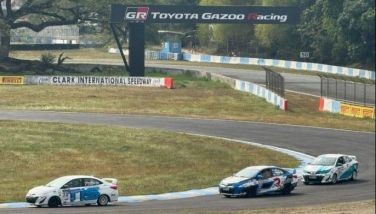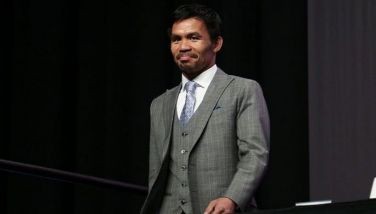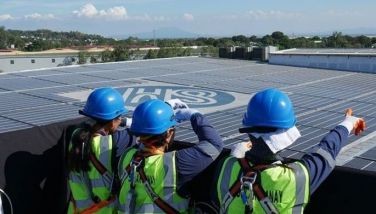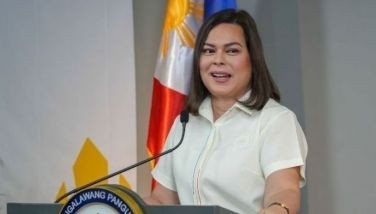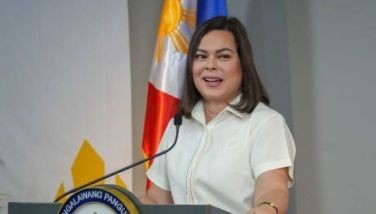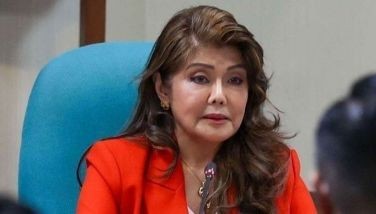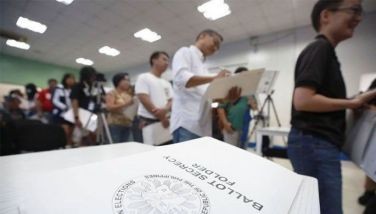DepEd to scale up disability inclusion via school sports
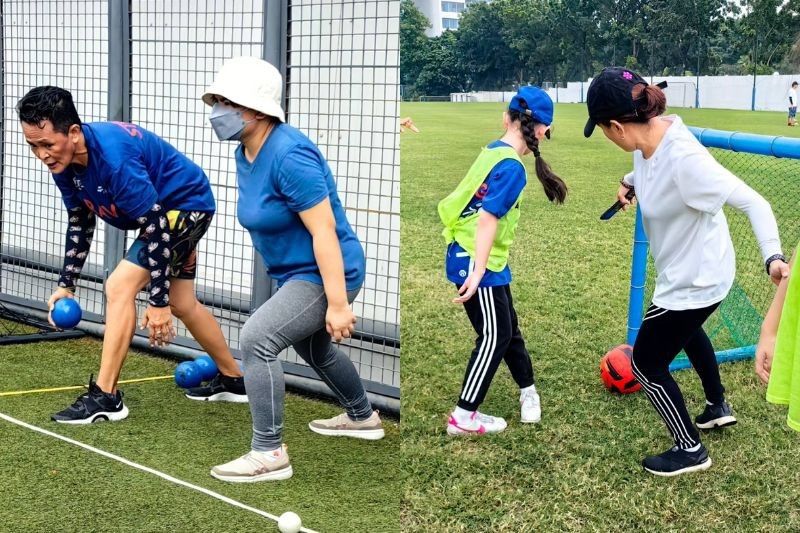
MANILA, Philippines — The Philippines has become the first Asia-Pacific nation to join a global sports inclusion program after the Department of Education signed an agreement with an organization specializing in "unified sports" on Tuesday, April 8.
Under the four-year partnership between the Department of Education and Special Olympics Pilipinas, at least 50,000 students with and without intellectual disabilities will train and compete together on the same sports teams with the goal of promoting inclusion and empathy.
The agreement, which runs from February 2025 through December 2028, establishes unified sports programs in at least 500 schools nationwide, from pre-school through senior high school.
At least 2,000 educators will also receive specialized training in working with students with intellectual disabilities and carrying out Special Olympic programs.
"When I look at Special Olympics Pilipinas, it's been a sleeping giant within the Special Olympics movement. There is so much potential to work with people with intellectual disabilities in this country," Dipak Natali, president of Special Olympics Asia Pacific, told Philstar.com.
"There is such a wonderful ethos within Filipino culture to actually care and support people that are not as privileged as others," he added.
Leveling the playing field
Representatives of Special Olympics Pilipinas say unified sports ultimately aim to combat the stigma, isolation and bullying that scores of young Filipinos with intellectual disabilities face in schools.
DepEd's agreement with Special Olympics Pilipinas makes the Philippines the 21st country to join the Special Olympics Global Coalition for Inclusion, alongside countries like China, Mongolia, and other nations in Africa, Europe, the Middle East, and the Americas.
Overall, the program consists of three key components: unified sports, inclusive youth leadership, and whole school engagement.
"Unified sports means we bring together people with and without intellectual disabilities to play sports," explained Pam Rolink, Youth Initiatives Manager for Special Olympics Asia Pacific.
"What better way of getting to know each other than on the playing field? When you're on a playing field with other people, it shows very quickly who's a defender, who's an attacker, who should have what position."
While the program itself will center on sports activities, Rolink said the program goes far beyond physical education.
"It takes more than physical education to create inclusive communities within school systems," she noted. "It's really based on the theory of change that if we bring people with and without intellectual disabilities together, they get to know each other, that's how we will create acceptance and eventually inclusion."
Aa Galicia, national director of Special Olympics Pilipinas, also expressed the organization's vision for regular, consistent programming rather than occasional events.
"We want to provide year-round sports programs on a weekly basis, whether it's bocce, athletics, swimming, or even just recreational or fitness activities," Galicia said.
A technical working group composed of officials from both DepEd and Special Olympics Pilipinas will oversee the activities that will be completed under the partnership, with built-in monitoring systems to track the unified sports program's effectiveness.
"Inclusive education might seem like something which is quite lofty," Natali said, "but when you think about what we're trying to do, whether it be around creating community, or whether it's about actually trying to make sure that everyone has the right opportunity to reach their full potential, isn't that what every society is looking for?"
Philippines as pioneer of unified sports in schools
When asked why the Philippines was selected as the first Asia Pacific nation to join the coalition, Natali pointed to several factors that made the timing right.
"We've seen attitudes, we've seen infrastructure, and we've seen capacity all coming together. So, for me, the Philippines is a great, it's almost like the right time for the Philippines," he said. "We think the Philippines will be that pioneer, that flagship into the right space."
Rolink highlighted the Philippines' existing policy framework as a key advantage. "I think the Philippines is very progressive when it comes to the Inclusive Education Act and the rules and regulations under that act," she said.
The signing ceremony at the Philippine School for the Deaf on Tuesday was attended by education officials and the organization's national president Akiko Thomson-Guevara, a three-time Olympian and former Philippine Sports Commission commissioner.
Top-down support
Rosalie Condes, DepEd's public schools district supervisor for Pasay City, said successful implementation of inclusive education programs depends heavily on securing buy-in across multiple levels of the education system, from those working in the field to higher DepEd officials.
DepEd's division office in Pasay City had already implemented unified sports programs before the actual partnership between DepEd and Special Olympics Pilipinas.
Pasay City is home to the Philippine National School for the Blind and the Philippine School for the Deaf — the country's two main schools catering to students with visual and hearing disabilities.
"You can't move without [the superintenden's] blessing... That's why the implementation of the Special Olympics in the Philippines [in Pasay] was successful, because [Superintendent Joel Torrecampo] supported me," said the district supervisor, who herself previously served as school head at the Philippine National School for the Blind.
According to a primer by the Global Coalition for Inclusion, an estimated four million Filipino children have some form of disability, with intellectual disabilities being the most common developmental condition affecting approximately 1 to 3% of the population globally.
Although the Philippines has progressive policies on paper, widespread challenges persist in their implementation, according to the primer.
Data shows that over half of elementary and junior high schools and nearly 30% of senior high schools lack proper facilities for persons with disabilities.
The government's 2020 census revealed a significant jump in the population identified as having at least one functional difficulty — from 1.57% in 2010 to 8.68% in 2020.
The Philippines has made legislative strides through Republic Act 11650 or the Inclusive Education Act, which promotes inclusive education and protects the rights of learners with disabilities to access equitable, quality education.
This law, however, has hit a snag due to the years-long delay in the release of its implementing rules and regulations (IRR). The IRR was released December 2024, over two years after the law was signed in March 2022.
--
Definition of terms
Unified sports refers to a program that brings together people with and without intellectual disabilities to train and compete on the same teams. It is designed to promote inclusion and break down stereotypes through shared experiences in sports.
Inclusive education is an approach that ensures that all learners, regardless of ability, study side by side in the same classrooms with the support they need.
- Latest
- Trending
















